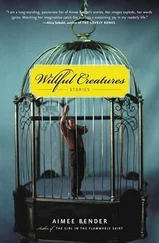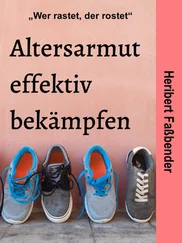He smiled at me, those bright teeth, and then he walked on to his destination.
HE SHOWED UP AT THE AIRPORT THREE DAYS LATER, AND THEN three days after that. I could see him from far away, his gait quick and clipped as he went through the airport; he slowed down when he began to approach me. Each time, he handed me his ID and asked me a question. The second time, he asked me, “Why do you think people like those conventions?” The third time I yawned when he approached me, and he asked, “Ms. Orson. Did you miss your coffee this morning?” Passengers had to be careful when asking questions, so as not to seem too interested in how this place operated. He seemed merely to believe I had something he wanted to hear. When I answered him the third time (yes, I had missed coffee, in fact), he nodded, his eyelids flickering, and I was startled, for I thought I detected something else about him: he wanted to know who I was.
THERE WERE TWO WEEKS LEFT BEFORE LESTER MADE HIS DECISION. I walked into the airport in the morning, past Deanne, past Joanne, past Fernando, past Harvey, past Lester. I wanted to talk to them but did not know about what. Our conversations had become oddly cheerful and stilted, so that no actual information was being conveyed. Today they were extremely fascinated by their various procedures and for some reason were having trouble looking at me. Joanne leaned forward and brushed my shoulder with her hand. Tenderly.
“How are your roses?” she asked.
It seemed strange to even ask a question; the roses weren’t the point at all. Civility was a form of distraction.
“Great,” I said.
She nodded. Then she got to the point.
“You notice how Lester’s been walking around us?” she said.
“Yes,” I said.
“He’s been spending more time near you,” she said. “We’ve discussed it.”
My throat felt cold.
“What did you discuss?”
I could see a smile in the crease of her eye; it crushed me to see it.
“I can’t say. There was consensus.”
Joanne stood, arms crossed, sheathed in the armor of this alleged consensus.
“Why were you talking about me?” I asked. Softly.
“We’re trying to help you,” she said. “We’re trying to give you a heads-up—”
“How nice. A heads-up,” I said.
She stepped back, her face reddening. Joanne! I stared at her, noticing the mole on her left cheek, the patch of grayish hair above her forehead, parts of her I had never quite seen before. When had they become part of her? Then I glanced at Fernando, and I saw a birthmark on his ear, and I saw Harvey limp in a way I had never noticed as well. I shuddered. What else had I missed? In them, in my family? Had I missed some flaw in my father’s driving, so that I had let them go to the opera when they should not have gone? Had I made a mistake in telling my mother to get ice cream? Who had we been, truly? I worried that I was having difficulty remembering them. My parents had fought, on and off, during my childhood, trading off in their bossiness; my father’s realm concerned time, his need to be punctual. My mother wanted mostly to treat herself, with pretty shoes and desserts with clouds of whipped cream — those were the ways each one disappointed the other. Sometimes they walked through the house and their words sounded like metal lids pressing down on steam. That’s when my sister liked my voice, when we went into the yard and came up with names for the roses that grew there: the Orange Queen, the Tropicana, the Snowburst; the roses seemed parental in their way, watching us.
But I remembered, too, the moments when my parents loved each other, when their shared hunger for the world was such that they decided to take us somewhere new. Sometimes, we jumped in the car and went to a random place — a donut store in an alley, a tarnished merry-go-round — and they walked beside us, holding each other’s hand.
I didn’t know what about them to remember. As I thought about that last night, my parents became cartoonishly diminished, my father blind, my mother rushing, me oblivious to it all because I just was. Then I remembered getting off the phone and telling my sister that there had been an accident, and not being able to tell her the next fact, my mouth dry, bitter, until I did, and I wondered what she had heard in my voice then, or after, what I had done, ever, that made her fly so far away.
“Why are you telling me this?” I asked.
“I don’t know,” said Joanne. She looked frightened, of me? Of herself? “Don’t ask me; ask the consensus.”
I did not want to believe what she said was true.
“I have to protect our country,” I said, softly, and I went to my station.
I WENT FOR COFFEE WITH JOHN COMET. WE MET AT A DINER NEAR the airport. I had never had coffee with a passenger before. The table, the silver forks on their paper napkins, the hill of white sugar in the canister, everything seemed shiny and theatrical. We had been guard and passenger, and now we regarded each other warily, now something else. I ordered coffee, and I got an English muffin, as he did.
“Why are you this? A security agent?” he asked.
I told him what had happened to my family. And then how I had felt, walking through an airport. I wanted to wear that uniform and stand at the security gates; I wanted to feel how it would feel to be the gatekeeper, to decide whether or not it was safe to allow them to walk through the scanner, to shepherd them safely to their planes.
At work, the last few weeks, I had been holding everything in, every nuance of feeling. Now John Comet was sitting here, completely innocent, and I wanted to unload everything onto him. His hand reached up and smoothed his light brown hair from his face. With purpose. A blameless gesture.
“So that’s what I’ve been doing,” I said. “For three years.”
“Well,” he said. “I see.”
We were not exactly great conversationalists. The silver sugar canisters glowed in the sun.
“How did you get into custom luggage?” I asked.
“I’m in marketing,” he said, leaning forward slightly. “This company hired me and said, what do people really want to take with them when they’re going somewhere? Some people bring lots of, you know, toiletries, other people say screw that, I just need my tennis shoes. We aim to please everyone. We give people ways to carry things. Anything.”
He spread more butter on his muffin, vigorously.
“My wife didn’t like luggage,” he said.
“Your wife?” I asked.
“Ex. She took one bag when she moved out. With our son. Louis. She left all his stuff. His toys, his Pokémon cards, etc. I knew he’d want it. I had to bring it to him.”
“When did she move out?” I asked.
“Two years ago. And a month. She’s waiting tables in Miami. Married a new guy. Louis is in third grade.”
His voice was coarser than I had expected. He had a slight accent, maybe New Jersey. He stirred some sugar into his coffee, gently, and then a bit harder.
“So,” he said, his voice softer, “I tell my customers you need lots of pockets.”
We talked about nothing. How I grew roses on the deck of my apartment. A few of them, yellow and pink and cream, their fancy faces turned toward the sun. He owned rare beetles, a unique specimen that was usually found in Brazil. His voice became soft, wistful as he told me about them. “I was on a tour when I saw one. Sitting on a leaf. It had green, purple wings that looked like glass. It looked like it had come from another galaxy. But here it was. I wanted it. I had never wanted anything like that. I wasn’t supposed to bring it back. But I did. I have four of them. They live in a custom-made cage by the refrigerator. They eat lettuce and carrot shreds.” He whispered so that his words felt like a treasure bestowed on me.
Читать дальше












